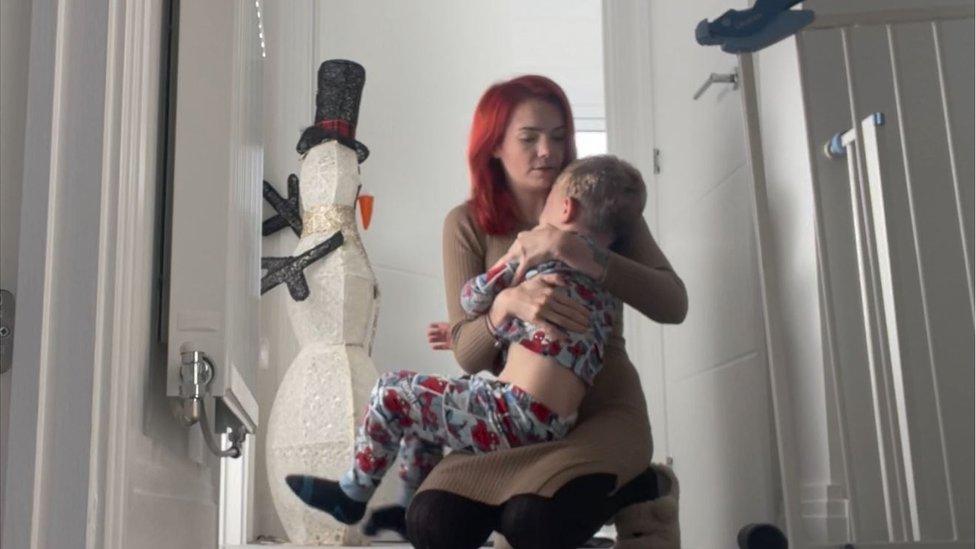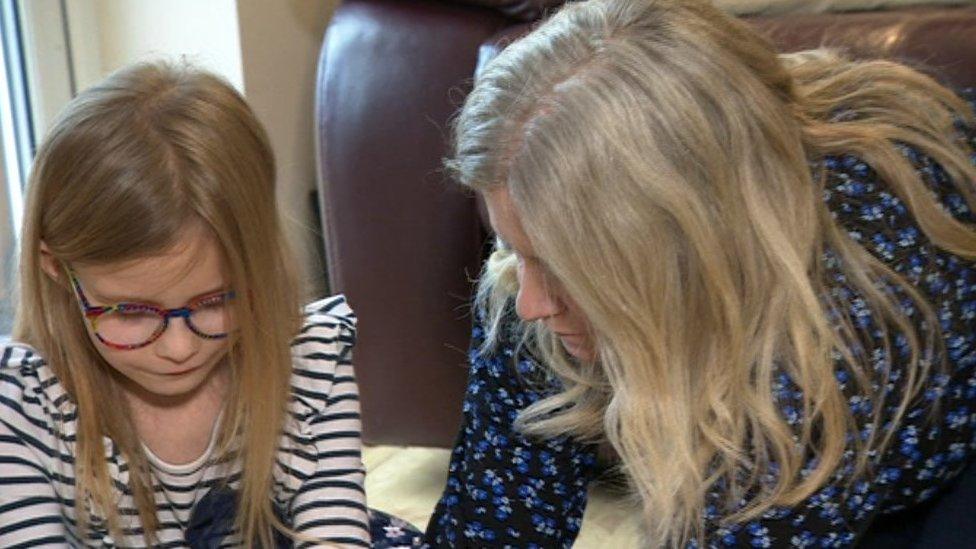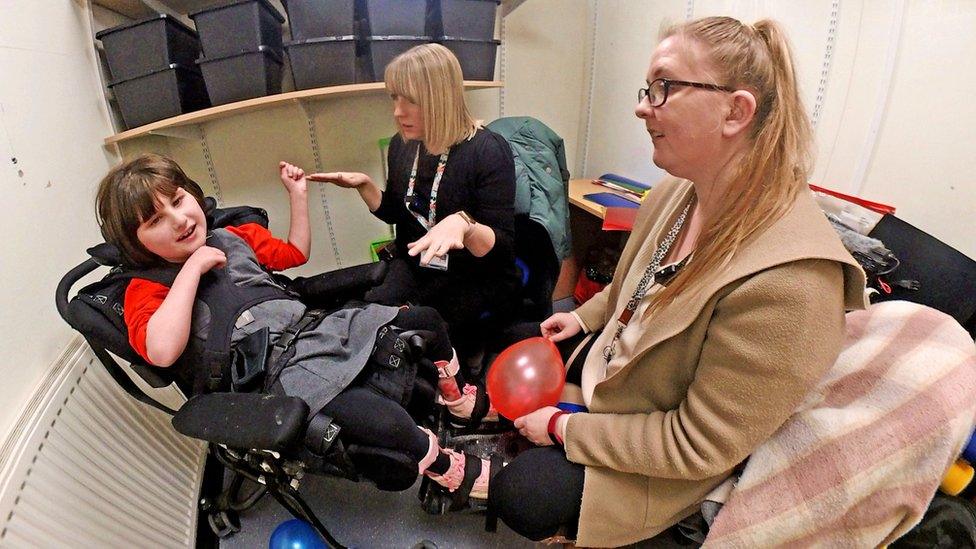SEND diaries: Mothers record 'typical day' parenting their children
- Published

Olivia says she has "desperately" searched for a spot in a specialist school for her son Stanley
Children out of education, careers cut short and crumbling mental health.
These are some of the ways parents of children with special educational needs (SEND) say they are being impacted by a system struggling with demand.
BBC South Investigations has spoken to three women to see how they cope with limited support.
It comes after research by the BBC in 2023 found half of state-funded schools in England for SEND children were oversubscribed.
Leeanne from Southampton, Alicia from Winchester and Olivia from Didcot in Oxfordshire have all recorded video diaries showing their 'typical day'.

'I've had a black eye, split lip'
Southampton mother says it took two tribunals to secure SEND school
Leeanne says on a "typical, normal day" her six-year-old son Albie is a "lovely, happy boy".
But she has struggled for the last two years while he has been unable to attend a mainstream school.
Albie has been out of school since 2022, as Leeane says he found it too overwhelming and could not complete a full day in class.
The mother-of-five says he stopped attending on medical grounds but she has been fighting to find him a place in a specialist school.
After two tribunals, she told the BBC that has happened but the process has taken its toll on her.
Leeanne was diagnosed with PTSD and anxiety and is unable to work as she is a full-time carer for Albie.
She says the stress of the situation led to the breakdown of her marriage, and 2023 had been "really hard".

'I'm becoming a shell of my former self'
Winchester mother questions choice to send autistic son to school
Leeanne's daughter Alicia is coping with a similar situation.
Her four-year-old son Loui was diagnosed with autism after his first year of attending a mainstream school.
The mother-of-two says she had to leave her career in telecommunications as the school would call her "at any moment" to go and collect Loui.
She explains her son is overstimulated by the typical classroom setting, which has led to a pattern of school refusal and daily meltdowns.
Alicia also says day-to-day activities, like grocery shopping, medical appointments and haircuts, have been abandoned, as she prioritises preventing situations that could overstimulate her son.

'Quite often I'll end up getting into bed with him'
A mother from Didcot says her autistic son has had no school offers
Olivia says she recently felt "really down, really low and lonely" after her five-year-old son Stanley lost out on a potential school placement.
He has autism, a sensory processing disorder and a severe speech delay, and was preparing to make the transition from nursery to primary school in 2024.
But Olivia says due to her son's special educational needs, no school has offered him a place.
The mother-of-three explained Stanley's anxiety about going to school has now heightened and he is increasingly refusing to go out to nursery.
Olivia says they have "desperately searched" for a school, but she is struggling with her self-worth as she is currently unable to work.

'We work extremely hard'
Local authorities say they "understand the worries" many families of children with special educational needs have, in terms of securing them places in specialist schools and securing appropriate support.
Councillor Steve Forster, from Hampshire County Council, says: "We work extremely hard to provide the right levels of assistance to meet a child's individual needs but the significant increase in the number of children and young people requiring extra support, which has risen exponentially in recent years, is putting additional pressure on our services."
He says the additional pressure on services in this area is "a national issue", which will require increased funding and legislative change.

Alicia says she questions whether its is right to send her son to a mainstream school but places in specialist schools are hard to secure
A spokesperson for the Department for Education says the government is increasing its funding by 60% for special and alternative provision places to £10.5bn in 2024.
They add: "Every child deserves to have access to education that meets their needs. Councils are responsible for providing the right support for children in their areas, but we know there is more to do."
In September an Ofsted inspection found "long-standing failings" in Oxfordshire's special educational needs and disabilities services, leading to a "tangible sense of helplessness" among families.
Councillor Kate Gregory, from Oxfordshire County Council, says: "We recognise that we are only at the start of our improvement journey and that it will take time for real change to be felt by families."
She says progress has been made but "much more is to come" and the authority is "determined to make a real difference".

Follow BBC South on Facebook, external, X, external, or Instagram, external. Send your story ideas to south.newsonline@bbc.co.uk, external.
Related topics
- Published15 September 2023

- Published21 June 2023

- Published20 February 2023
